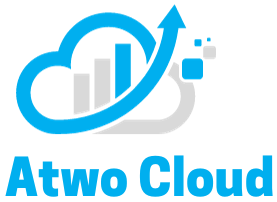In today’s rapidly evolving business landscape, staying ahead of the competition requires the right tools. This is where Salesforce Clouds come into play. As one of the leading Customer Relationship Management (CRM) platforms, Salesforce offers various cloud solutions tailored to meet the diverse needs of businesses, regardless of their size or industry.
Whether you’re new to CRM or exploring Salesforce for the first time, this comprehensive guide will help you understand Salesforce Clouds and how they can elevate your business operations. Let’s dive in!
What is Salesforce Cloud?

At its core, Salesforce Cloud refers to a suite of cloud-based applications offered by Salesforce, designed to enhance business functions like sales, marketing, customer service, and more. It leverages cloud computing to provide businesses with flexible, scalable, and efficient tools to manage customer data, collaborate across teams, and automate processes.
Cloud computing essentially means accessing software and data via the internet, rather than relying on physical servers. Salesforce, being a cloud-based CRM, offers businesses the opportunity to streamline their operations from anywhere in the world, at any time.
Overview of Different Salesforce Clouds
Salesforce offers several specialized clouds, each designed to serve different aspects of business needs. Let’s take a look at the most popular Salesforce Clouds:
a.) Sales Cloud
Sales Cloud is primarily focused on sales teams. It helps businesses manage leads, opportunities, contacts, and accounts. Sales reps can track customer interactions, forecast sales, and automate sales processes, making it easier to close deals and increase revenue.
b.) Service Cloud
Service Cloud enhances customer service by enabling support teams to resolve customer issues quickly and efficiently. It includes features like case management, knowledge bases, and omnichannel support to deliver an exceptional customer service experience.
c.) Marketing Cloud
Marketing Cloud helps businesses create and manage personalized marketing campaigns. With advanced tools for email marketing, social media, and customer segmentation, it enables businesses to engage customers with targeted content and promotions.
d.) Commerce Cloud
Commerce Cloud is a powerful solution for businesses operating in the e-commerce space. It enables seamless online sales experiences, integrating inventory management, customer service, and personalized shopping experiences.
e.) Community Cloud
Community Cloud connects businesses with their customers, partners, and employees through collaborative online communities. It’s ideal for creating portals, discussion forums, and customer feedback systems that improve communication and engagement.
f.) Analytics Cloud
Analytics Cloud, also known as Tableau CRM, empowers businesses to make data-driven decisions. It provides robust data visualization tools, reports, and dashboards to analyze performance, trends, and customer insights.
g.) IoT Cloud
The IoT Cloud connects devices to Salesforce, allowing businesses to manage and process real-time data from connected devices. This cloud is especially useful for industries that rely on real-time monitoring and data collection.
h.) Financial Services Cloud
This cloud is designed specifically for financial institutions. It provides tailored solutions for managing client relationships, tracking financial goals, and ensuring compliance with industry regulations.
Key Features of Salesforce Clouds
Salesforce Clouds come with a wide range of features that can transform how your business operates. Some of the most notable include:
a.) Scalability and Customization:
Salesforce allows businesses to scale their operations and customize solutions to meet specific needs, from small startups to large enterprises.
b.) Data Security and Compliance:
Salesforce’s robust security features ensure that your data is protected, meeting industry standards and compliance requirements.
c.) Automation and AI:
Powered by Salesforce Einstein, Salesforce Clouds offer automation features, such as lead scoring, predictive analytics, and workflow automation, that help businesses streamline processes and increase efficiency.
d.) Third-Party Integration:
Salesforce can seamlessly integrate with other business tools like ERP systems, social media platforms, and accounting software.
Why Choose Salesforce Clouds for Your Business?
Salesforce Clouds stand out because of their flexibility, ease of use, and wide range of features. Here are a few reasons why businesses choose Salesforce:
a.) Comprehensive Solution:
Salesforce combines various business functions under one platform, allowing teams to collaborate effectively.
b.) Cost-Effectiveness:
Salesforce’s pricing models are flexible, making it a great option for businesses of all sizes, from small startups to large corporations.
c.) Boosts Productivity:
By automating tasks and providing real-time insights, Salesforce helps businesses work smarter and not harder.
d.) Improved Customer Experience:
With Salesforce’s customer-focused solutions, businesses can deliver personalized, timely, and efficient experiences for customers.
How Salesforce Clouds Benefit Different Business Functions
Each Salesforce Cloud serves a specific business function, and here’s how they add value:
a.) Sales Teams:
With tools for lead management, opportunity tracking, and sales forecasting, Sales Cloud equips sales teams with everything they need to drive revenue growth.
b.) Marketing Teams:
Marketing Cloud enables marketers to segment their audiences, run campaigns, and measure performance, allowing for more targeted and effective marketing efforts.
c.) Customer Service Teams:
Service Cloud ensures customer support agents can resolve issues quickly, improving customer satisfaction and loyalty.
d.) E-commerce Teams:
Commerce Cloud allows e-commerce businesses to create seamless shopping experiences, improving conversions and customer retention.
Salesforce Cloud Implementation: What You Need to Know
Implementing Salesforce Clouds can seem like a daunting task, but with proper planning, it can be a smooth process. Here’s what you need to do:
a.) Identify Your Needs:
Choose the Salesforce Cloud that best suits your business needs—Sales Cloud for sales, Service Cloud for support, etc.
b.) Customization:
Customize Salesforce to fit your business processes, workflows, and team structures.
c.) Training:
Invest in training for your team to ensure they can fully leverage the platform’s features.
d.) Integration:
Integrate Salesforce with your existing systems to ensure seamless data flow.
Challenges and Considerations When Using Salesforce Clouds
While Salesforce offers many benefits, there are a few challenges to consider:
a.) Learning Curve:
With so many features, Salesforce can be overwhelming for new users, so ongoing training is crucial.
b.) Data Security:
While Salesforce provides strong security, businesses must still ensure their data privacy and compliance measures are in place.
c.) Cost:
Although Salesforce is cost-effective for many, it may not fit within every small business’s budget, especially if you require advanced customization.
Salesforce Cloud Pricing: Understanding the Costs
Salesforce offers various pricing tiers depending on the cloud solution and the number of users. It’s essential to understand the pricing structure to make an informed decision:
a.) Subscription-Based:
Salesforce charges on a subscription basis, with prices varying based on the features you need.
b.) Additional Costs:
Customizations, integrations, and training may come with additional costs.
Future of Salesforce Clouds: What’s Next?
Salesforce continues to innovate, with features like AI, machine learning, and IoT transforming its clouds. The future holds more predictive capabilities, automation, and seamless integrations, enabling businesses to stay agile and competitive.
Conclusion
Salesforce Clouds offer an all-in-one CRM solution designed to enhance every aspect of your business. From sales to marketing to customer service, Salesforce provides powerful tools that can help businesses of all sizes streamline their operations, boost productivity, and improve customer satisfaction.
Now that you understand the basics of Salesforce Clouds, it’s time to explore which cloud is best suited for your business and start implementing it today.
FAQs
What is the difference between Salesforce Clouds?
Each Salesforce Cloud serves a different purpose, such as sales, service, marketing, and e-commerce, offering tailored tools for each business function.
How do I choose the right Salesforce Cloud for my business?
Assess your business needs—Sales Cloud for sales teams, Service Cloud for customer support, Marketing Cloud for marketing teams, etc.
Can Salesforce Clouds be used by small businesses?
Yes, Salesforce offers scalable solutions suitable for small businesses as well as large enterprises.
How long does it take to implement Salesforce Cloud?
Implementation time depends on the complexity of your business needs, but with proper planning, it can take anywhere from a few weeks to a few months.
Is Salesforce Cloud secure for sensitive business data?
Yes, Salesforce offers robust security features, including data encryption, compliance with industry standards, and multi-factor authentication.
Ready to take your business to the next level with Salesforce Clouds? A-Two Cloud can help you implement the right Salesforce solution for your needs, ensuring seamless integration and a smooth transition. Get in touch with us today to learn how we can transform your business with Salesforce!




